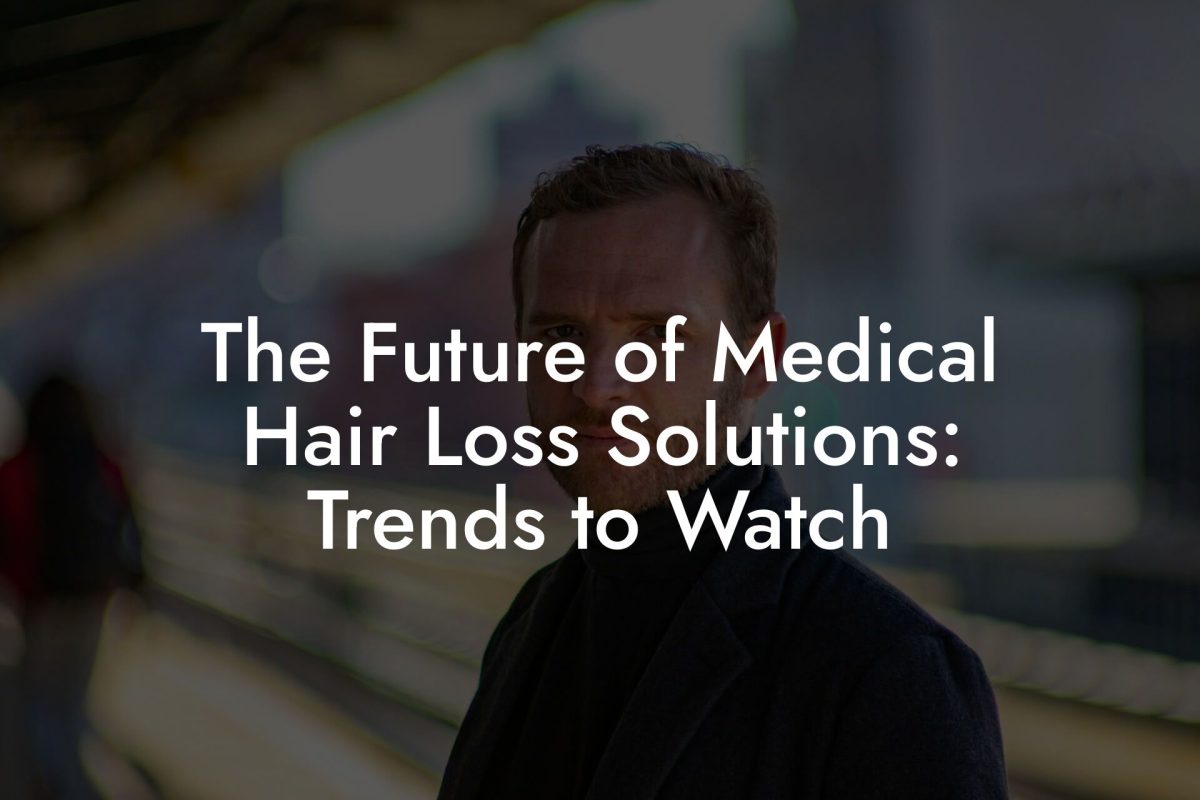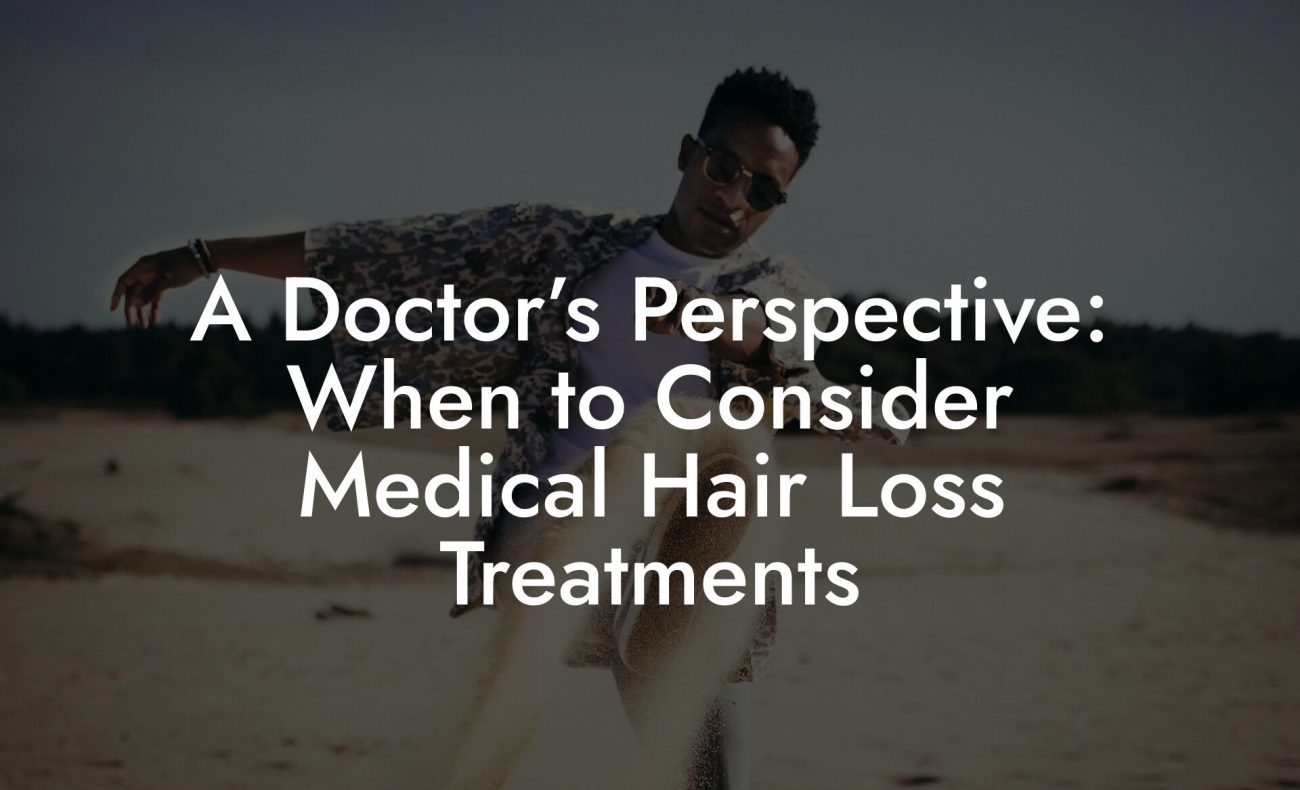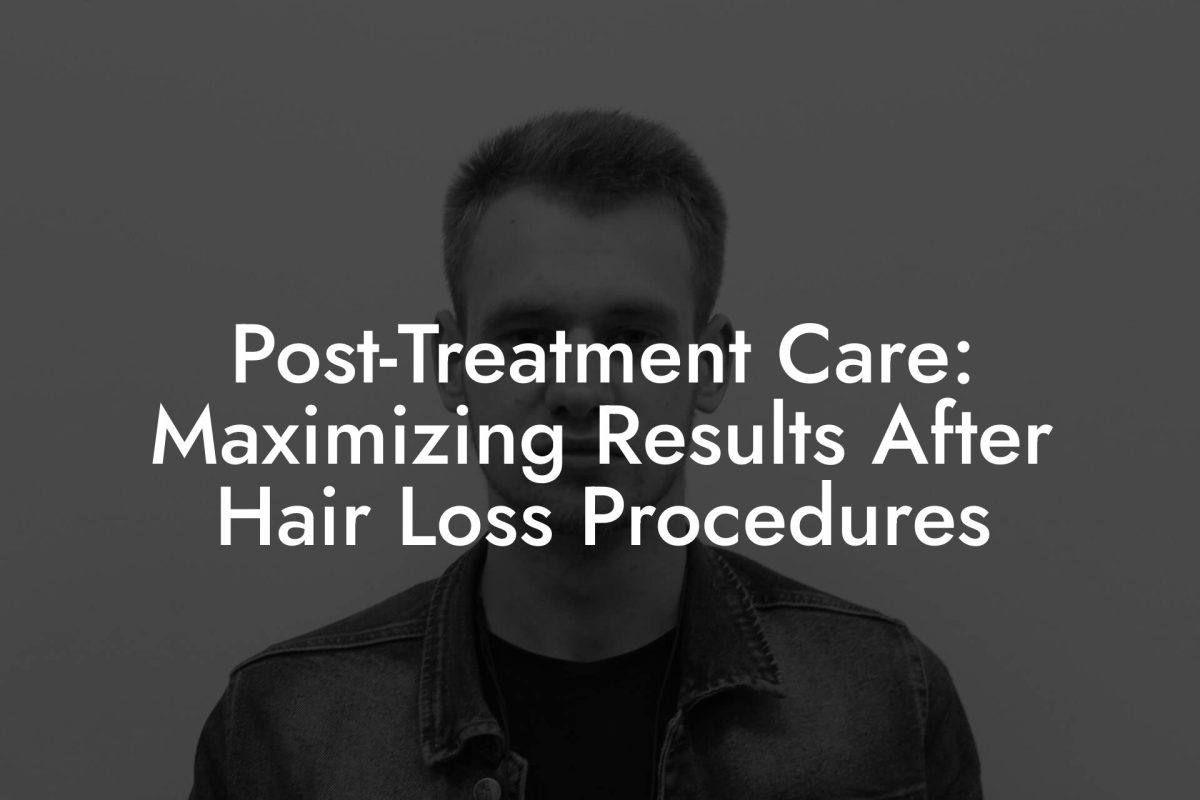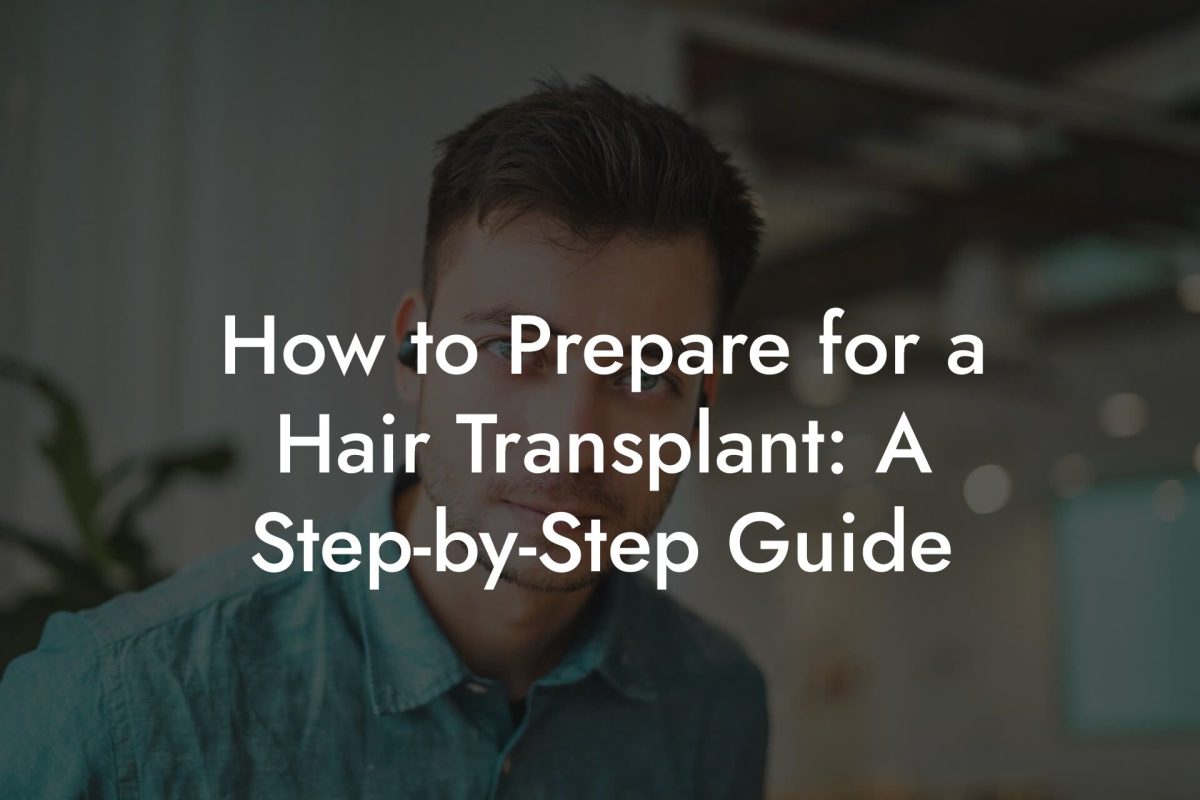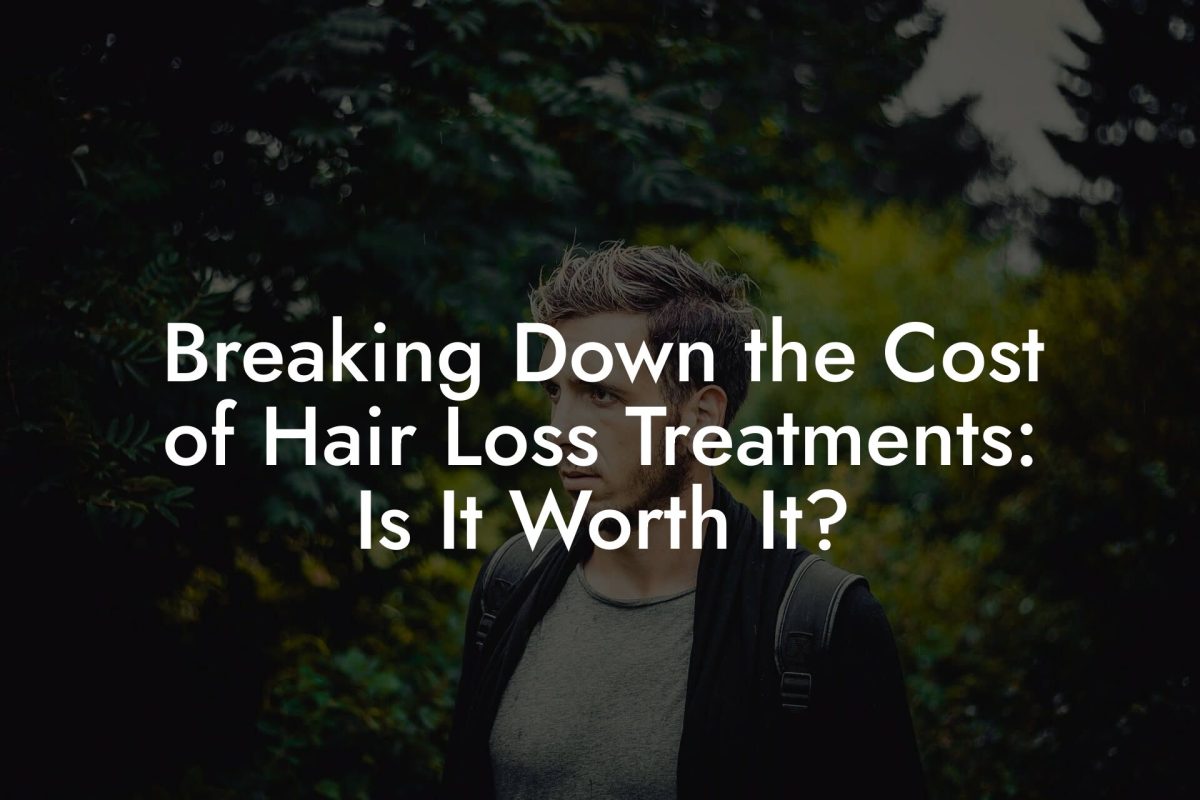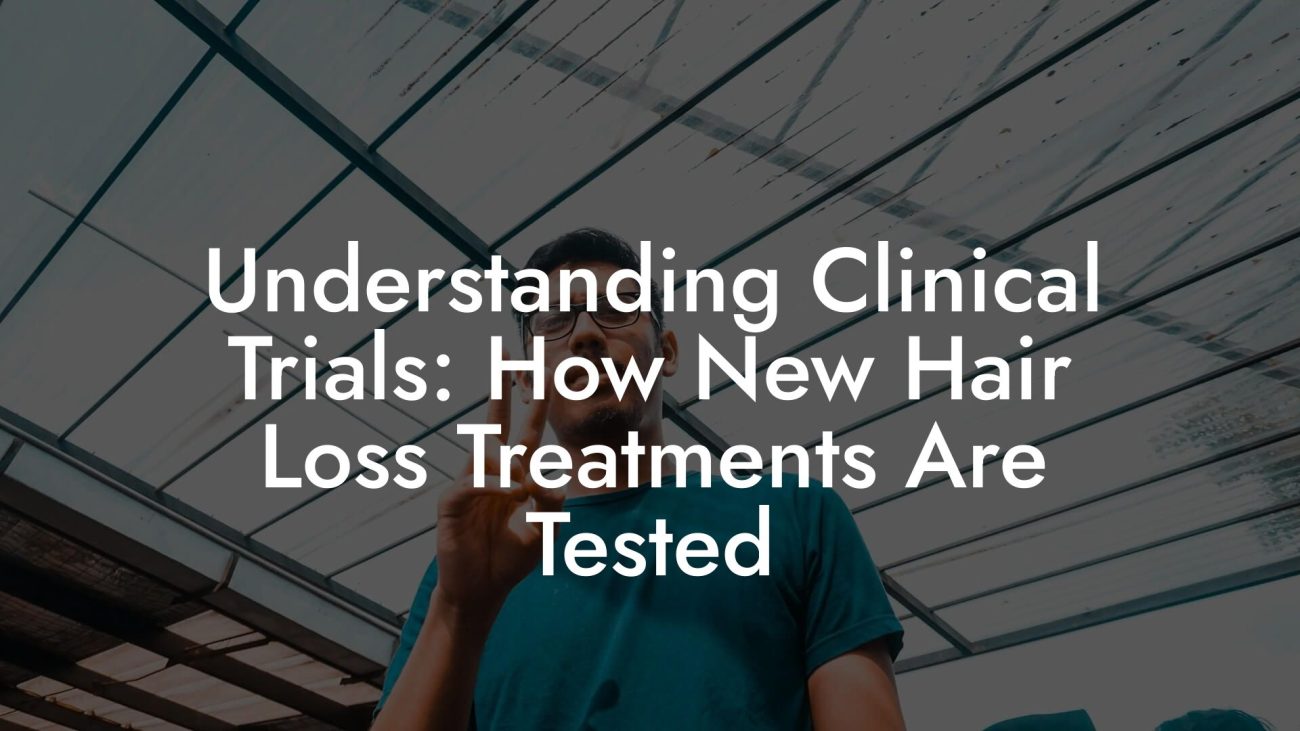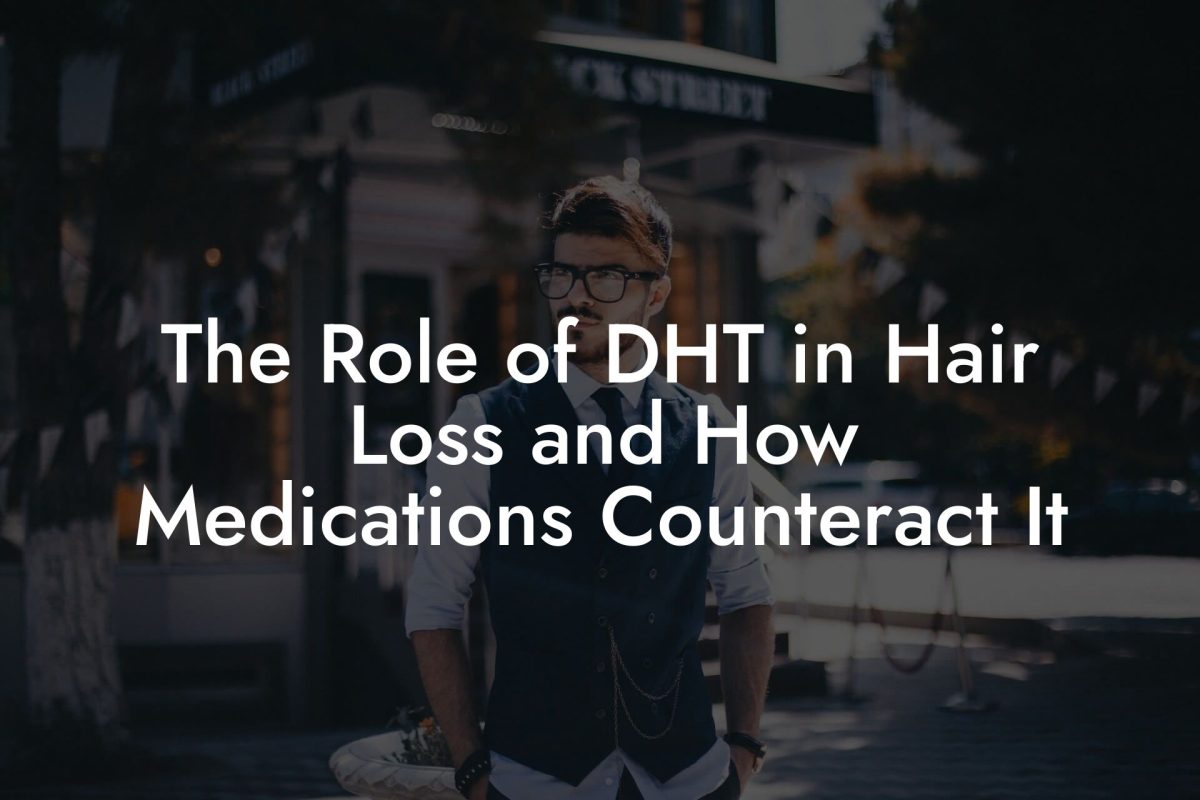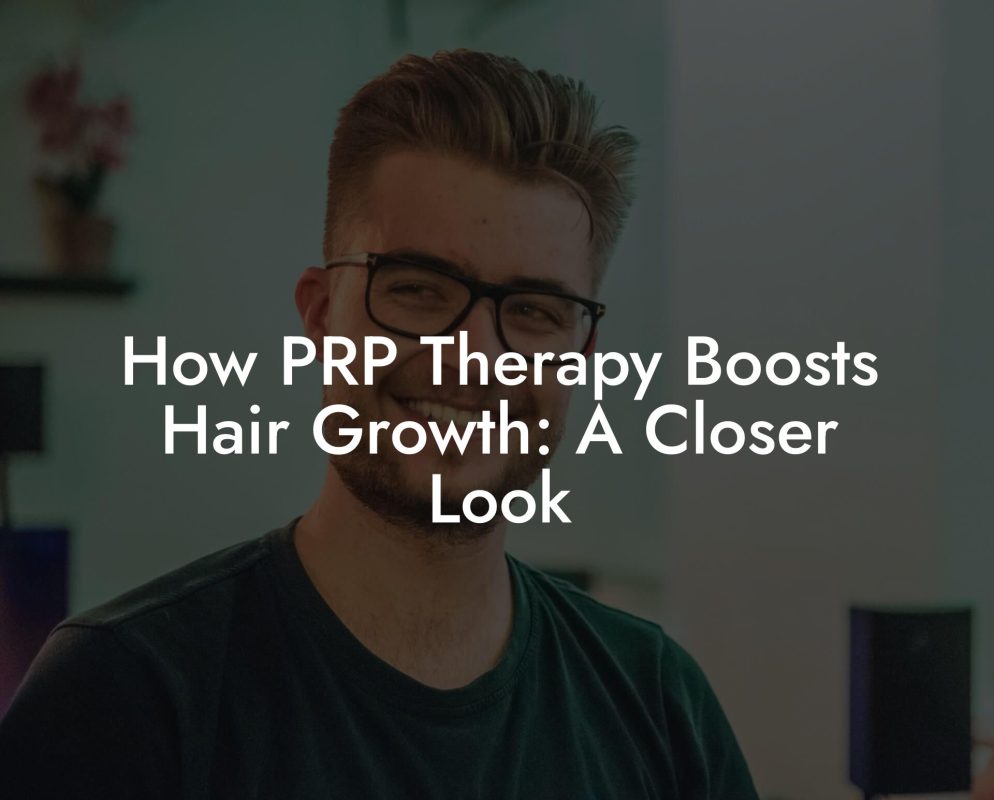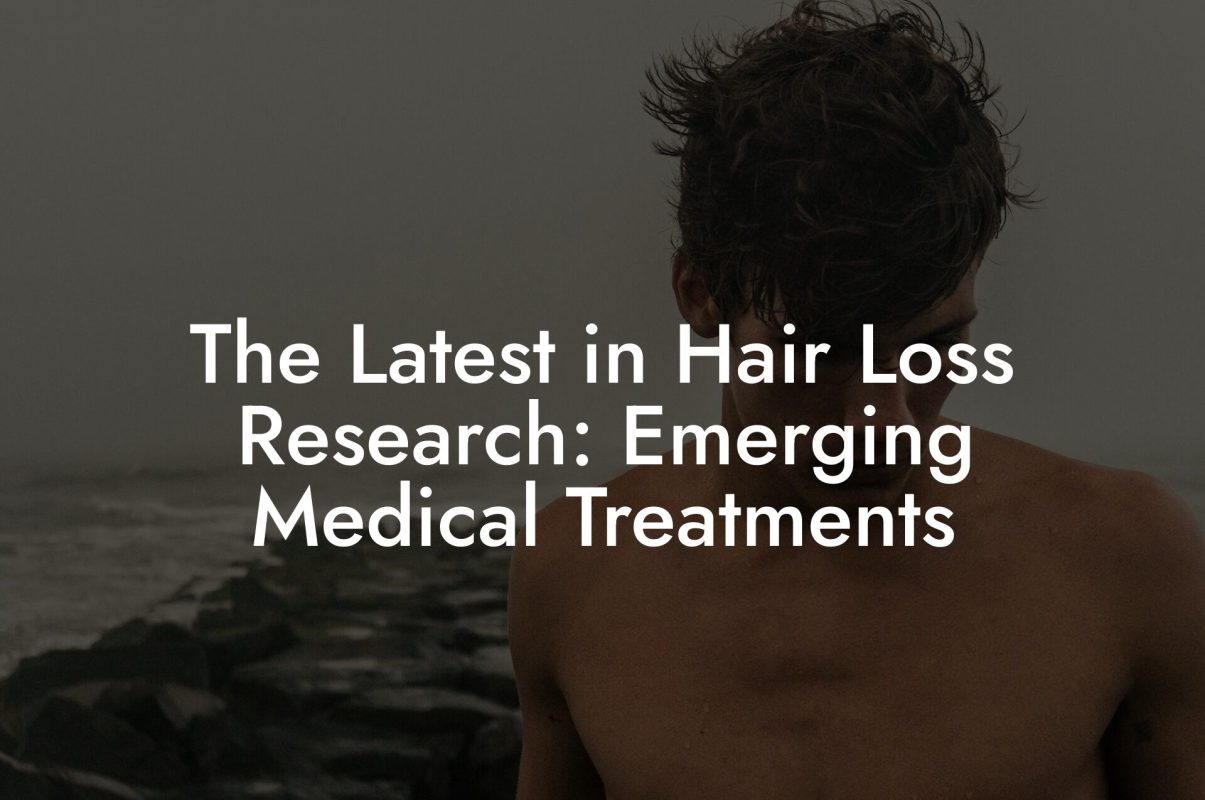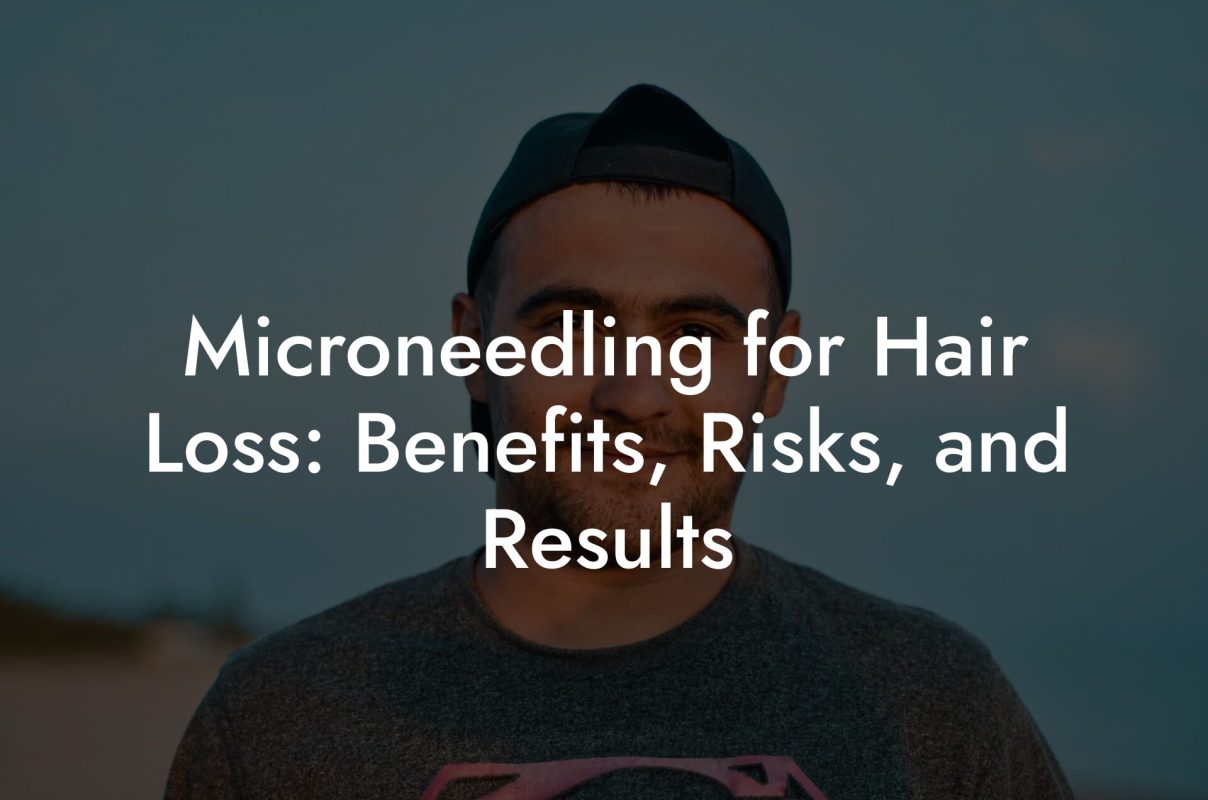Hair Loss Library
The Pros and Cons of Oral Hair Loss Medications

So you’ve noticed a little extra scalp real estate and a little less hair on top, and now you’re wondering if popping a pill might be the solution. Welcome to Mane Matrix’s deep dive into the pros and cons of oral hair loss medications—a guide as bold, insightful, and refreshingly humorous as your favorite meme. In this article, we’re cutting through the fluff (pun absolutely intended) to give you the real lowdown on how these medications work, what they can do for your hair, and why they might not be the silver bullet you’ve been dreaming of. Whether you're a stressed-out millennial or a savvy Gen Z dude, strap in for a wild ride through the science, the side effects, and the wallet’s reaction.
Unmasking Oral Hair Loss Medications: What’s the Buzz?
Oral hair loss medications, often whispered about in chat rooms, coffee meet-ups, and a few late-night Reddit threads, are a common treatment option for many men battling hair thinning and loss. Unlike topical treatments that you might squirt onto your scalp (and risk looking like you’re auditioning for a bad shampoo commercial), these pills work systemically—the medicine travels in your bloodstream to target the root causes of hair loss. Sounds like a high-tech James Bond gadget for your follicles, right?
But before you run out and order a 30-day supply from an online pharmacy that promises miracle hair growth, it’s important to know what you’re signing up for. Oral medications like finasteride (the king of anti-hair loss pills) have a reputation for delivering results, but, like your favorite roller coaster, they come with ups and downs.
In our journey today, we’ll explore the science behind these medications, how they stack up against topical alternatives, and what you need to consider if you’re ready to take the plunge into the realm of oral hair loss treatments. Grab your favorite iced coffee, kick back, and let’s get into the nitty-gritty!
How Do Oral Hair Loss Medications Work?
Think of your hair follicles as the workplace of your scalp—vibrant, bustling, and sometimes, in need of a little managerial intervention when things start going south. Oral hair loss medications work by interfering with the hormones responsible for shrinking those hair follicles. The primary culprit in male pattern baldness is dihydrotestosterone (DHT), a derivative of testosterone that binds to your follicles and sends them into a deep sleep.
Medications like finasteride block an enzyme called 5-alpha-reductase, halting the conversion of testosterone to DHT. With lower DHT levels, your hair follicles get a chance to relax, rebuild, and, in some cases, start producing hair again. It’s like giving your scalp a well-deserved vacation from the constant assault of stress hormones.
However, as is often the case with systems that seem too good to be true, there can be collateral damage. When you’re sending hormone signals on a scalp-wide messaging system, other areas of your body might pick up the memo—and not all of these messages are sunshine and rainbows.
The Pros: Why Some Guys Swear By Oral Hair Loss Medications
There’s a lot to love about oral hair loss medications. Let’s break down the advantages that make these little pills so appealing to dudes from Brooklyn to Boise.
1. Clinically Proven Effectiveness
The biggest draw of medications like finasteride is their proven ability to reduce hair loss and, in many cases, even encourage regrowth. Clinical studies have shown that a significant number of men experience not just halted deterioration, but a reversal of the hair loss process. For guys who are seriously committed to salvaging their mane, this can be a game-changer.
2. Easy-to-Take Oral Format
Let’s be honest—the thought of applying lotions or meddling with complicated devices isn’t exactly what you signed up for. Oral medications are as easy as taking your daily vitamin (assuming you don’t forget them on those long weekend trips). Just one pill a day, and you’re on your way to potential follicle revival.
3. Non-Invasive Treatment Option
Unlike hair transplant surgeries or laser treatments that can be expensive, time-consuming, and downright intimidating, oral hair loss medications offer a non-invasive alternative. No needles, no scalp injections—just you, a pill, and the hopes of putting the bristle back in your beard (or hairline) without the drama.
4. Consistent and Predictable Results
For many users, the steady, albeit gradual, improvement in hair health over time is a major plus. With consistent daily use, many men begin to see a slowdown in hair loss progression within several months. For the meticulous man who loves tracking his progress, there’s satisfaction in knowing that every day counts—even if the change is barely noticeable at first.
5. Convenient for Busy Lifestyles
Whether you’re juggling a hectic work schedule, a bustling social life, or just the occasional Netflix binge, the simplicity of a daily pill is a huge benefit. There’s no need to rearrange your entire routine or miss a gym session because you’ve got an elaborate home treatment session to prepare.
6. Cost-Effective in the Long Run
Although the cost of these medications can add up over time, they’re often a more affordable option compared to the high price tags associated with hair transplant procedures. For those who need a little boost without breaking the bank, the long-term value is definitely a plus.
The Cons: What to Consider Before Taking the Plunge
As with any treatment that sounds almost too good to be true, there are a few caveats and concerns you should be aware of before starting on oral hair loss medications. Here are the key drawbacks:
1. Potential Side Effects
One of the most commonly discussed issues with oral hair loss medications is the risk of side effects. Some men have reported experiencing diminished libido, erectile dysfunction, and even mood swings. While these effects are generally rare and reversible upon discontinuation of the medication, they can be a dealbreaker for those who are particularly sensitive about their sexual health.
2. Sexual and Hormonal Changes
Because these medications alter hormone levels, some users have experienced a shift in sexual function that can feel unsettling. Libido fluctuations, changes in ejaculation volume, or even a slight drop in overall energy levels can occur. It’s important to weigh these possibilities against the desire to stop the hair loss.
3. Continuous Commitment Required
Think of oral hair loss medications like that gym membership you’ve been paying for all year with little visible change—consistency is key. If you stop taking the pill, any benefits you’ve seen may quickly vanish, and the hair loss process can resume without warning. This means you’re in it for the long haul, and if you’re not ready for a lifelong commitment, this might not be the route for you.
4. Time to Noticeable Results
Patience is a virtue, but let’s be real—waiting for noticeable improvements can be a test of endurance. Most users must endure several months of daily dosing before any significant hair regrowth can be seen. When you’re anxiously checking your reflection every morning, those months might feel like an eternity.
5. Quality Control and Prescription Requirements
Unlike trendy new skincare products you can pick off the shelf, most oral hair loss medications require a prescription. This means a visit to your healthcare provider, some blood tests, and a waiting period during which your doctor decides if you’re a good candidate. Additionally, not all medications are created equal—quality and regulatory approval can vary greatly depending on where you’re purchasing them.
6. Price Tag Over Time
While generally more cost-effective than surgical interventions, the cumulative cost of daily pills over several years can be significant. Compared to a one-time procedure, this is a recurring expense that might add up, so it’s important to factor this into your long-term budgeting—especially if you’re riding the student loan wave into your thirties.
7. Emotional and Psychological Considerations
Let’s face it—starting any kind of treatment for hair loss can be an emotional decision. Some men feel the pressure of maintaining a youthful appearance and worry about the long-term implications of relying on medication for self-esteem. Balancing your mental well-being is crucial, so be sure to consider speaking with a trusted professional if the idea of daily pills causes more stress than relief.
The Science Behind the Magic (and Mayhem)
To truly appreciate the pros and cons, it helps to understand what’s happening on a cellular level. Our hair follicles are influenced by androgens—hormones that play dual roles in building muscle and, unfortunately, in accelerating the miniaturization of hair follicles in susceptible areas. Oral hair loss medications work by reducing levels of DHT (dihydrotestosterone), a potent androgen.
Think of DHT as the party crasher at your scalp’s celebration. When DHT levels are high, your hair follicles get overwhelmed and start to shrink, turning from party animals that produce lush hair into wallflowers that barely show up at all. By lowering the amount of DHT in your blood, these medications give your follicles a chance to breathe, potentially reversing the miniaturization.
However, the hormonal tinkering doesn’t come without risks—our endocrine system is a delicately balanced network. For some, reducing DHT too much might interfere with other aspects of hormone regulation. For instance, DHT also plays a role in sexual function and mood regulation. It’s a classic case of “there’s no such thing as a free lunch,” which is why the decision to take oral hair loss medications should always be made with the full picture in mind.
Comparing Oral Medications with Topical Treatments
You might be wondering how oral medications stack up against topical hair loss treatments. After all, if you can simply massage a foam or spray onto your scalp while binging your favorite series, why bother with pills?
Topical treatments like minoxidil have their own set of superpowers—they’re non-prescription, easy to apply, and often come with fewer systemic side effects. However, they require strict adherence (think twice daily application with absolute precision) and can sometimes leave your scalp feeling like it was hit by a chemical shower. Moreover, what works for one person might not work for another, and many users find that combining treatments is the secret sauce to success.
Oral medications offer a more convenient, once-a-day regimen and are generally recommended for individuals with a genetic predisposition to hair loss. But if you’re looking for a more holistic, multi-pronged approach, sometimes a combination of oral and topical treatments may yield the best results. It’s all about customizing your hair care journey to suit your unique lifestyle and goals.
Real Men, Real Stories: Experiences with Oral Hair Loss Medications
Nothing brings a topic to life like stories from men who have been there. Let’s talk about a few real-life experiences that might mirror your own hair loss battles:
Case Study 1: The Optimistic Overcomer
Meet Jason, a 32-year-old marketing whiz who noticed thinning at the crown just as he was promising a promotion to himself. After doing some research (and enduring a few memes on his social feed), he decided to give finasteride a whirl. Within five months of daily use, Jason began to notice a slowing of hair loss, and over time, even some regrowth. Sure, a few initial mood swings and a temporary dip in libido had him Googling possible side effects, but with adjustments and a healthy dose of humor, he’s now feeling confident about his appearance—and his work meetings.
Case Study 2: The Reluctant Convert
Then there’s Marcus, a 28-year-old creative with a penchant for unconventional styles. When razor-thin hair started to disrupt his carefully curated look, Marcus was skeptical. However, after reading a slew of success stories on community forums and chatting with his dermatologist, he started on an oral medication regimen. Marcus found that while the results were gradual and required patience, the convenience of a once-daily pill outweighed the minor side effects he encountered along the way. “I never thought a pill could boost my confidence as much as a good haircut,” he jokes—and his receding hairline is now more of a distant memory.
Case Study 3: The Analytical Mind
Finally, we have Ryan, a tech-savvy data analyst who appreciates the numbers behind everything. Ryan meticulously tracked his hormone levels, hair density, and even stress through a series of apps. His research led him to try oral medications, and after six months, his data indicated a clear trend: reduced DHT levels corresponded with a slowing of hair loss and some new growth. “It was like debugging a complex system—I just had to find the right balance,” he says. For Ryan, the experience was as much about self-optimization as it was about vanity.
While every man’s journey with hair loss medications is uniquely personal, these stories underscore that the path to a fuller head of hair is often paved with persistence, adaptation, and a healthy sense of humor.
What the Research Really Says
In an era of tiktok hacks and viral skincare routines, solid scientific research is the true MVP. Numerous peer-reviewed studies have confirmed that oral hair loss medications, particularly finasteride, can not only prevent further hair loss but sometimes spark new growth. That said, like any scientific process, there’s variability in efficacy—what works like a charm for one may yield only marginal benefits for another.
Researchers have pointed to a correlation between long-term use of these medications and a reduction in hair shedding. Yet, the same studies often highlight the importance of starting treatment early. Once follicles have been dormant for too long, even the most potent medication can struggle to revive them. That’s why early intervention is something that many experts stress: catch it before it becomes a full-on scalp crisis.
It’s also worth noting that while most studies focus on the benefits and side effects, further research is needed to fully understand the long-term impact on overall health—especially in younger men whose hormonal balance is still a key part of their well-being. As science evolves, so too will our understanding, ensuring that your informed decision today is backed by the best available research tomorrow.
Potential Risks: What Everyone Should Know
No treatment is without its risks, and oral hair loss medications are no exception. Alongside the well-known side effects like potential sexual dysfunction and mood changes, there are more nuanced risks that merit careful consideration:
Hormonal Effects Beyond Hair
Lowering DHT might seem like an isolated change, but hormones play many roles in your body. Some users report changes in muscle mass, energy levels, and even subtle shifts in their emotional equilibrium. This isn’t to say these effects happen to everyone, but if you’re someone who’s in tune with your body’s signals, even slight hormonal adjustments can feel like a big deal.
Impact on Fertility
Although rare, there have been discussions in the scientific community about potential implications for fertility. If you're planning on starting a family in the near future, having a candid conversation with your healthcare provider about your options is crucial—because no one wants baby fever to come with unexpected plot twists.
Long-Term Commitment and Monitoring
As mentioned before, consistency is key with these treatments. However, the long-term nature of oral hair loss medications means that you might need regular check-ins with your doctor, periodic blood tests, and a willingness to adapt your treatment plan along the way. In other words, this isn’t a “set it and forget it” solution—it requires ongoing oversight.
Understanding these risks and monitoring how your body responds can help you make a well-informed decision. Remember, your hair is just one piece of a much larger puzzle, and your overall health comes first.
Expert Insights: Is Oral Medication Right for You?
Every man’s hair loss journey is as unique as his streaming queue. When considering oral medications, it’s important to have the full picture. Experts weigh factors like genetics, the rate of hair loss, age, and overall health before recommending a specific treatment plan.
Think of it like customizing your playlist—what works perfectly for your friend might be a total flop for you. A consultation with a healthcare provider, particularly one experienced in the field of hair restoration, can help tailor your treatment plan to your needs. They’ll take into account any underlying conditions, discuss realistic expectations, and help manage any potential side effects. The idea is to empower you with knowledge so that you can make an informed decision, free from the pressure of overhyped marketing or the fear of missing out.
Additionally, a customized plan often considers the possibility of combining oral medications with other treatments like topical minoxidil or even low-level laser therapy. This multi-pronged approach maximizes the benefits while minimizing the potential pitfalls. Ultimately, you deserve a solution that fits your lifestyle, budget, and long-term goals.
Getting Started: What to Expect When You Begin Treatment
Once you’ve decided that oral hair loss medications might be the right move, here’s what the journey typically looks like. First up is a consultation with your healthcare provider, where they’ll discuss your medical history, current hair loss pattern, and any other pre-existing conditions. This isn’t a one-size-fits-all scenario, so expect some honest, no-nonsense conversations.
After you’re cleared for treatment, your doctor will prescribe the appropriate dosage. Then, it’s all about consistency and patience. For a while, your daily routine will include that tiny pill—one that may silently work wonders or quietly remind you of the trade-offs involved with modern medicine.
During these early months, you might not notice dramatic changes right away. That’s okay. Hair regeneration is a slow-burning process, and most men begin to see subtle differences after three to six months. It helps to keep a journal of your progress—snap a selfie every few weeks, track any changes in mood or libido, and note any other observations. This evidence-based approach not only keeps you motivated but also provides critical feedback for your doctor if adjustments are needed.
And remember: patience is your best friend. As with any significant change, there’s a period of adjustment, and your body needs time to find its new rhythm.
Investment and Affordability: Let’s Talk Money
Oral hair loss medications aren’t exactly free, and it’s important to get a clear view of the cost structure before signing up for a potentially lifelong treatment. The upfront price might seem manageable, but remember that these are daily medications that add up over months—and years.
Many insurance plans might not cover hair loss treatments, categorizing them as cosmetic rather than medically necessary. This means out-of-pocket expenses are the norm. It pays to shop around, read reviews, and even inquire about patient assistance programs that some manufacturers offer.
When budgeting for this treatment, consider the dedicated expense as part of your overall self-care investment. After all, confidence is priceless, but even confidence comes at a price tag if you want to keep it looking as good as your social media profile.
Resources and Community Support: Your Next Steps
Taking the plunge into any medical treatment can be daunting, which is why tapping into community support and reputable resources is key. Here at Mane Matrix, we not only offer expert analysis without the stuffy consultations but also a vibrant community of men who are navigating the ups and downs of hair loss together.
Consider joining online forums, social media groups, or even local meet-ups where you can swap experiences, share tips, and provide a little comic relief during tough moments. There’s power in community—knowing you’re not alone in this journey makes the day-to-day challenges a bit more manageable.
Additionally, our website is chock-full of expert articles, video tutorials, and Q&A sessions designed to help you understand your treatment options, track your progress, and ultimately regain not just your hair, but your confidence. Knowledge is power, and by staying informed, you take control of your hair loss narrative.
If your treatment plan opts for a combination approach (oral medications supplemented by topicals or other therapies), these resources can help you coordinate your strategy, monitor side effects, and celebrate small victories along the way. It’s not just about popping a pill; it’s about making a lifestyle choice that’s tailored to your unique hair journey.
Staying on Track: Tips for Long-Term Success
If you decide to go the oral medication route, here are some practical, down-to-earth tips to ensure you maximize your results while minimizing disruptions:
- Set a Reminder: Use your smartphone to set a daily alarm—it’s like having a tiny cheerleader in your pocket.
- Track Your Progress: Document your journey with photos, notes, or even a dedicated app. Seeing progress, however slight, can be a huge morale booster.
- Maintain a Healthy Lifestyle: Regular exercise, a balanced diet, reducing stress, and quality sleep all contribute to better overall outcomes. Think of your body as a finely-tuned machine where every component matters.
- Stay Informed: Science is always evolving, so keeping up with the latest research and expert advice will help you make informed decisions along the way.
- Don’t Hesitate to Ask for Help: Whether it’s a quick check-in with your healthcare provider or a reassuring chat in an online forum, don’t let questions or concerns pile up.
Adhering to these simple practices can make the long journey of treatment feel like a series of manageable, even enjoyable, steps toward reclaiming your confidence.
A Day in the Life: Integrating Treatment into Modern Man’s Routine
Picture this: It’s 7 AM, and your phone buzzes with that familiar reminder for your daily pill. You groggily reach for your glass of water before even hitting the shower. As you multitask during breakfast—scrolling through the latest TikTok trends and checking your emails—you ingest your commitment to fighting hair loss. It’s a small act, but over time, like those carefully curated Instagram highlights, it adds up.
As the day progresses, you might run into moments where you wonder if your investment in your hair is paying off. Perhaps you’re at work and a colleague makes a teasing comment about your “new minimalist look.” Instead of cringing, you smile and think of the months of consistent effort, next-level planning, and community support backing your decision. You know that every pill is an act of self-care—a step in reclaiming a piece of what makes you feel like the best version of yourself.
Evening comes, and you reflect on the day’s small victories: a positive comment on your latest post, a successful gym session, or an unselfconscious glance in the mirror. It all contributes to a gradual evolution—a testament to your resilience and commitment to self-improvement. And as you set your phone for tomorrow’s reminder, you’re once again reminded that every day is a step closer to the hair goals you’ve set.
Questions You Might Have: An FAQ on Oral Hair Loss Medications
We know that diving into the world of hair loss treatment can raise more questions than a riddle wrapped in a mystery. Here’s a list of frequently asked questions that might help clear the fog.
1. How long does it typically take to see results from oral hair loss medications?
Many men start noticing improvements within three to six months, though significant results might take longer. Patience and consistency are key.
2. Are the side effects permanent?
For most users, side effects (if they occur) are temporary and tend to resolve once the medication is discontinued—all under proper medical supervision.
3. Can I combine oral medications with topical treatments like minoxidil?
Yes! In many cases, a combination approach can enhance results. However, it’s important to consult with your healthcare provider to tailor the treatment to your needs.
4. Do I need a prescription for these medications?
Most oral hair loss medications, such as finasteride, do require a prescription. Be sure to speak with a trusted healthcare professional.
5. What happens if I stop taking the medication?
Discontinuing the medication often means that any benefits you’ve experienced could gradually reverse, and hair loss may resume.
6. Are there any dietary or lifestyle changes that can boost the effectiveness?
Definitely. Maintaining a healthy diet, regular exercise, and managing stress can improve the overall results of the treatment.
7. Can these medications affect my energy levels or mood?
Some users report minor changes in mood or energy levels, but these side effects are usually manageable and often resolve over time.
8. Is there any long-term research on the safety of these medications?
While a robust body of research supports their short-to-medium term use, long-term impacts are still being studied. It’s best to have regular check-ins with your doctor to monitor your overall health.
Armed with these insights, you’re better prepared to steer your hair care journey in the right direction.
Embracing the Journey to a Fuller, Bolder You
At the end of the day, whether you choose to embrace oral hair loss medications or explore other avenues, the goal is to reclaim your confidence and own your look. Your hair is just one of many parts that make you remarkable. The decision to start a treatment plan should empower you, not weigh you down with doubts or fears.
The path to optimal hair health is rarely a straight line. It’s filled with small victories, occasional setbacks, and plenty of learning moments along the way. By arming yourself with knowledge from trusted sources like Mane Matrix and taking charge of your personal health journey, you’re making a promise to yourself—a promise that every morning, whether you wake up with a full head of hair or a slightly thinning crown, will be met with determination, humor, and a little extra self-care.
There is no one-size-fits-all answer in the world of hair loss. What matters is that you have a clear understanding of the pros and cons, realistic expectations about the timeline, and a support network to back you up. Celebrate your progress, learn from your experiences, and never forget that your hair journey is a testament to your resilience and adaptability in a world that’s always changing.
So here’s to the journey ahead—a journey of informed choices, daily victories, and the kind of self-assurance that only comes from knowing you’ve got your back. Embrace the ups and downs, laugh at the challenges, and remember that in every receding hairline lies an opportunity for growth—even if it’s just more headroom for your dreams.
If you loved this article... Dive deeper into the world of mens hair loss with our most popular sections. If there is anything you think is missing or anything you would love for us to write about, just give us a shout.
Prescription Solutions: The Best Medications for Men’s Hair Loss
Minoxidil & Beyond: Exploring Topical Treatments for Hair Regrowth
How Finasteride Works: The Science Behind This Hair Loss Blocker
Platelet-Rich Plasma (PRP) Therapy: Is It the Answer to Hair Loss?
Hair Transplant 101: A Beginner’s Guide for Men
Exploring Laser Therapy: Non-Invasive Options for Hair Regrowth
The Pros and Cons of Oral Hair Loss Medications
New Frontiers in Hair Loss Treatment: Stem Cell Therapy Explained
Surgical vs. Non-Surgical: Which Hair Loss Treatment Is Right for You?
Understanding Combination Therapy for More Effective Hair Regrowth
How to Choose the Right Hair Loss Clinic: Expert Tips
Exploring Off-Label Treatments: What’s Worth Trying for Hair Loss?
Managing Side Effects: What to Expect from Hair Loss Medications
The Latest in Hair Loss Research: Emerging Medical Treatments
Microneedling for Hair Loss: Benefits, Risks, and Results
How PRP Therapy Boosts Hair Growth: A Closer Look
The Role of DHT in Hair Loss and How Medications Counteract It
Customized Treatment Plans: Tailoring Hair Loss Solutions for You
Understanding Clinical Trials: How New Hair Loss Treatments Are Tested
Breaking Down the Cost of Hair Loss Treatments: Is It Worth It?
How to Prepare for a Hair Transplant: A Step-by-Step Guide
Post-Treatment Care: Maximizing Results After Hair Loss Procedures
A Doctor’s Perspective: When to Consider Medical Hair Loss Treatments
Success Stories: Real Men Share Their Hair Restoration Journeys
The Future of Medical Hair Loss Solutions: Trends to Watch





